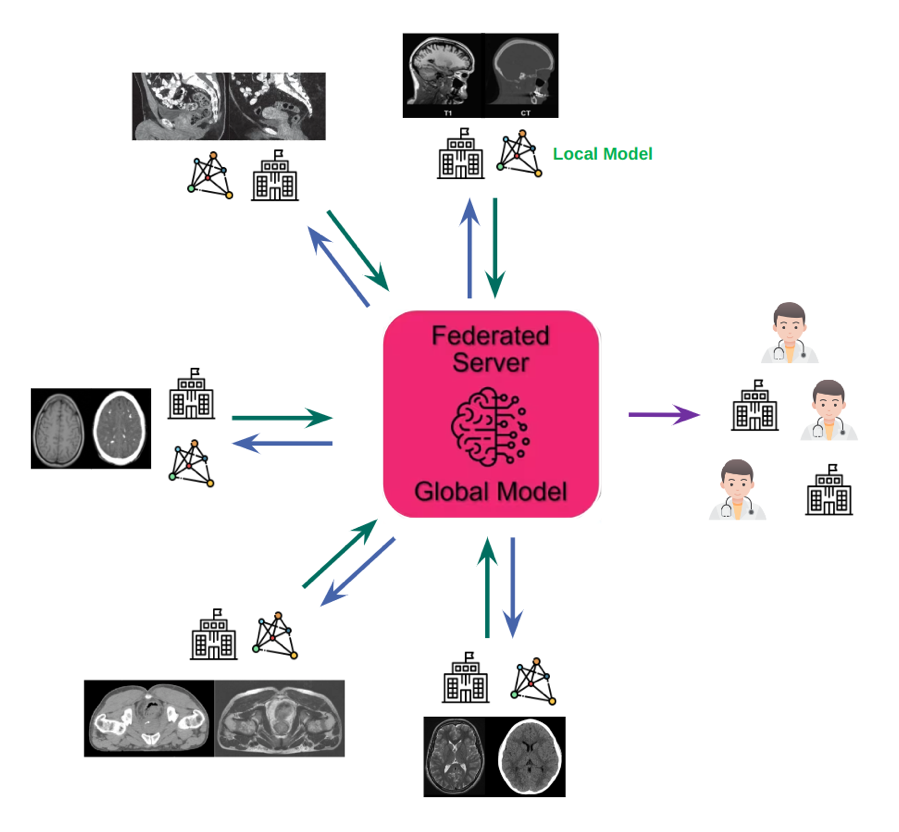Validating the Robustness of a Decentralized MRI to sCT Translation Framework on Different Anatomical Sites
- type:Bachelor thesis
- tutor:
- person in charge:
-
Motivation
Federated Learning (FL) presents a promising approach for training artificial intelligence models within the medical domain, particularly by safeguarding patient privacy through decentralized data processing. A decentralized framework has been developed for translating MRI into synthetic Computed Tomography (sCT) images. While initial assessments have demonstrated its feasibility on head MRI, the performance and robustness of this framework across diverse anatomical sites remain unvalidated. Different anatomical structures present different challenges, which may impact the reliability of the federated model. How does the inclusion of multiple anatomical sites affect the performance and generalizability of the federated MRI-to-sCT translation framework?
medical domain, particularly by safeguarding patient privacy through decentralized data processing. A decentralized framework has been developed for translating MRI into synthetic Computed Tomography (sCT) images. While initial assessments have demonstrated its feasibility on head MRI, the performance and robustness of this framework across diverse anatomical sites remain unvalidated. Different anatomical structures present different challenges, which may impact the reliability of the federated model. How does the inclusion of multiple anatomical sites affect the performance and generalizability of the federated MRI-to-sCT translation framework?Student Project
The objective of this project is to evaluate the robustness of the MRI-to-sCT translation framework by testing its performance on various anatomical sites, such as the brain and pelvis. This validation will involve evaluating generated sCT, assessing image similarity metrics and generalization capabilities across different anatomical regions. Through this study, insights will be gained into potential adaptations required to ensure consistent performance across diverse body parts, thus advancing the framework towards broader clinical application.
Notes
• Python or programming knowledge is a plus. Knowledge of medical imaging is a plus.
• All missing skills will be integrated during the first period of the thesis with dedicated sessions and goals.
• The student will have the opportunity to learn how to manage a project with SCRUM and GitFlow methodologies.

